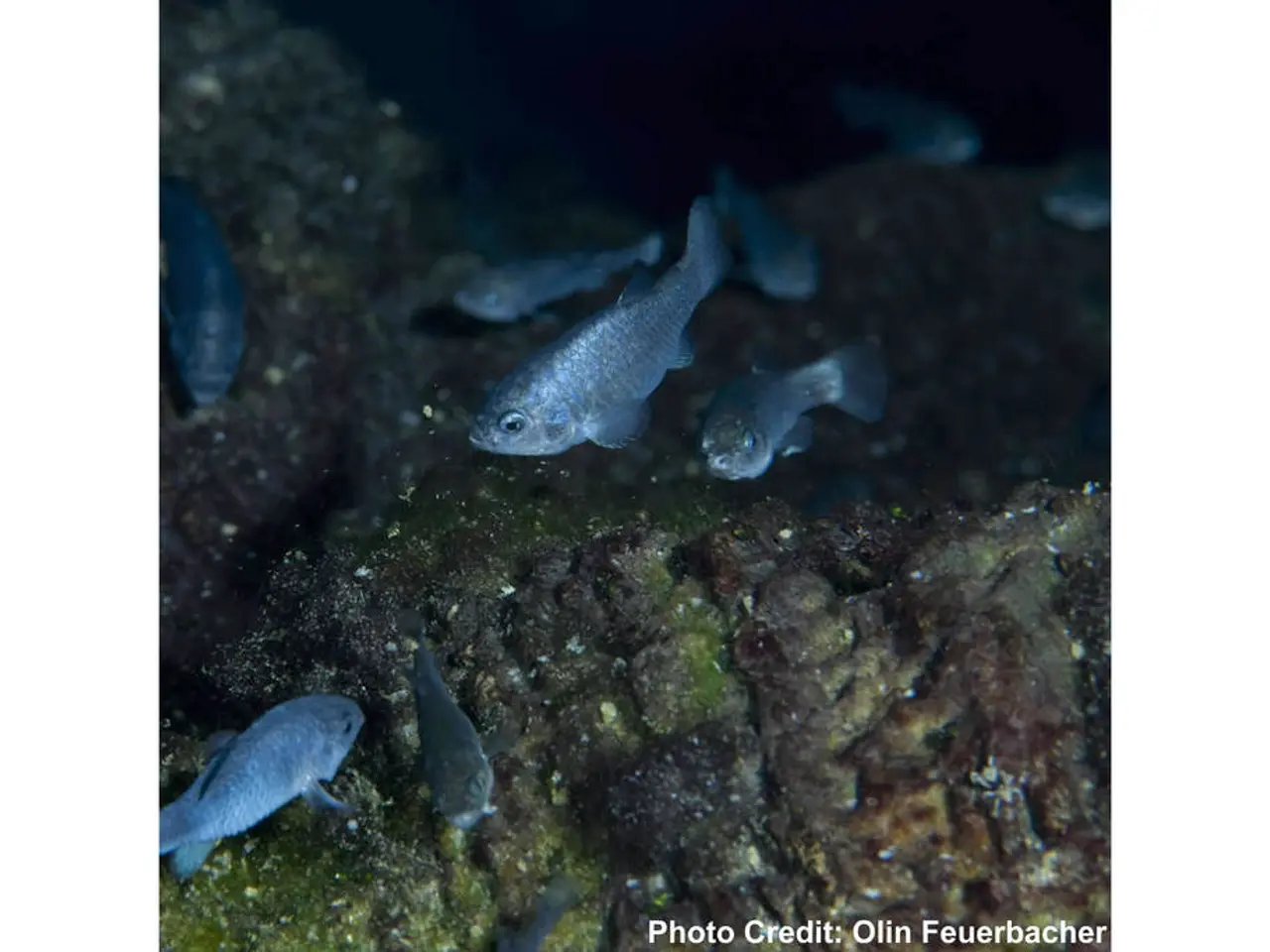Guide to Enhancing the Longevity and Well-being of Saltwater Aquarium Fish - Fish Health Series: Episode 1
In the captivating world of saltwater aquariums, the goal is to keep fish thriving for longer than their wild counterparts, often outliving them by a significant margin. However, fish health is often overlooked in aquarium husbandry, making it a crucial area of focus for hobbyists.
To maintain a healthy marine aquarium ecosystem, it's essential to follow expert strategies for disease prevention and treatment. Elliot Lim, from Marine Collectors, discusses these strategies in detail.
**Prevention**
1. **Quarantine new fish and corals (2-6 weeks):** Set up a bare-bottom quarantine tank with proper filtration, heating, and aeration. Observe new arrivals for signs of disease and perform treatments as needed before introducing them to your display tank. This step prevents introducing pathogens that can cause diseases like Ich, Velvet, Brook, and Uronema into the main aquarium.
2. **Maintain optimal water quality:** Regularly test and maintain proper chemistry (salinity, pH, temperature, nitrate levels). Stable conditions reduce stress that predisposes fish to disease and help prevent algae outbreaks and coral bleaching.
3. **Proper nutrition:** Feed high-quality frozen or live foods to strengthen fish immune systems, and remove uneaten food promptly to prevent deterioration of water quality.
4. **Coral dipping:** Use coral-safe dips (e.g., Revive, Bayer, Coral RX) before adding corals to remove pests.
**Regular Maintenance**
- Regularly changing and disposing of sediment filters every 1-2 weeks helps control parasite populations.
**Treatment**
1. **Hyposalinity treatment:** Gradually lower salinity in a separate hospital tank to a level lethal to marine parasites such as *Cryptocaryon irritans* (Marine Ich) but safe for most fish. This non-chemical method disrupts parasite life cycles without copper toxicity, ideal for sensitive species.
2. **Medications:** Use copper-based treatments (Cupramine) for Ich and Velvet, formalin for other external parasites, and praziquantel-based drugs (Prazipro) for internal parasites during quarantine or illness.
3. **Supportive care for diseases like swim bladder disorder:** Involve fasting fish for several days, adjusting water temperature to 78–80°F, feeding peeled cooked peas, and possibly using antibiotics if infection is suspected. Maintain clean water and stable conditions to support recovery.
4. **Vaccination and bath treatments:** Where applicable, vaccinations (injection, immersion, oral) can protect fish from viral and bacterial diseases. Bath treatments involve dosing fish in confined spaces with insecticides, antifungals, or vaccines under sedation to minimize stress.
By rigorously applying quarantine procedures, maintaining excellent tank conditions, and using targeted treatments including hyposalinity and appropriate medications, saltwater aquarists can effectively prevent and manage common fish diseases and parasites.
It's important to remember that Powder Blue and Powder Brown Tangs are highly susceptible to external parasites and are often dubbed "ich magnets." Additionally, corals can carry fish parasites into a display aquarium.
Incomplete nutrition affects the overall health of fish, including their ability to fend off disease and parasites. Therefore, understanding and catering to the natural diets of fish is crucial for their health.
With the right mindset, dedication, and knowledge, you can create and maintain a thriving saltwater aquarium ecosystem. The 15-part series provides guidance for hobbyists of any skill level. Don't forget that it is never too late to start a medication routine with future additions to a tank.
To further ensure the health and wellness of marine aquarium inhabitants, hobbyists must prioritize science-based practices such as understanding the natural diets of fish for complete nutrition, preventing parasite outbreaks through quarantine procedures, and employing hyposalinity treatment when needed for effective disease management. Additionally, science informs us that is essential to maintain a healthy ecosystem by regularly testing water quality, providing proper nutrition, and performing regular maintenance tasks like changing sediment filters.




